We all know of her. She’s one of Booktok’s literary darlings, an author who’s become synonymous with ‘unhinged girl fiction’ or ‘sad girl lit’. The pink spine of My Year of Rest and Relaxation has been spotted on the shelves of many acclaimed ‘cool girls’, her work clutched in the hands of countless celebrities. When a new book of hers is announced, we collectively wonder: what strange, unnerving little story will Ottessa Moshfegh unleash on us next?
Born to a Croatian mother and Iranian father, Moshfegh grew up in Boston, Massachusetts, before moving away to get a BA in English from Barnard College, and then an MFA in Literary Arts from ivy league college Brown University. Moshfegh released her first work of fiction in 2014, a novella titled McGlue. Her debut novel Eileen was released in 2015 and was shortlisted for the 2016 Booker Prize (formerly known as the Man Booker prize). After the release of a short-story collection, in 2018 Moshfegh published her second and what would become her most-famous novel: My Year of Rest and Relaxation. The book received positive reception, but it wasn’t until around two years later that the novel really took of, its sudden boom of popularity causing Moshfegh’s career to rapidly gain momentum.
As we shifted in and out of coronavirus lockdowns during 2020, it felt like everyone was reading it. And what a pertinent novel to read while struggling with the anxieties of an unprecedented pandemic and navigating life during a major historical event. A book about a woman who just wants to sleep for a year? Sounds pretty good to me. Maybe if we did that, this whole nightmare would be over quicker.
While the online book community on TikTok, now famously known as Booktok, was growing, My Year of Rest and Relaxation soon became the poster girl for a new genre known as ‘sad girl novels’, books defined by their melancholic, angry, or confused female protagonists. Despite the fact that Moshfegh has stated that her sad girl fans ‘concern’ her, this new dedicated fanbase had already built itself for her, like it or not.
Moshfegh’s writing has become known for its eccentricity, centring around socially depraved, lonely characters who act out gross behaviours and think strange thoughts and are just simply weird. Her voice is darkly-humorous and satirical, and it is through her work that she is able to reveal the grotesque, unsettling, raw realities of human nature. If that sounds like the kind of literature you’re interested in, then you’ve found the right author.
My Year of Rest and Relaxation (2018)
No surprises here - My Year of Rest and Relaxation is Moshfegh’s most popular book for a reason, and it’s a great introduction to her work. It contains many of the thematic elements she’s known for and sprinkles in her trademark grossness, without quite reaching the grotesque levels of her other books.
Set in pre-9/11 New York, My Year of Rest and Relaxation follows a privileged and beautiful unnamed protagonist who uses prescription medication to sleep for an entire year, hoping to be renewed when she wakes up. Both melancholic and humorous, it explores alienation, consumerism, and the search for meaning in modern life.
For all its ‘sad girl/cool girl/hot girl’ aestheticization, the novel is largely about grief, following a young woman who self-medicates as she is unable to cope with the pain of losing both parents in quick succession.
Eileen (2015)
Stuck in a coastal New England town caring for her alcoholic father and working a dead-end job at a boy’s prison, lonely and disturbed Eileen becomes obsessed with a bright, beautiful, and mysterious new colleague.
This book doesn’t have much in the way of plot and is not action-packed in the way you expect thrillers to be, but Moshfegh expertly builds the suspense just enough to maintain its foreboding, eerie atmosphere throughout. Eileen is a detailed character study of a troubled young woman, and when I say detailed…..let’s say the reader is regularly updated about Eileen’s bowel movements.
The book is a great example of a novel with an unlikeable character done well. Eileen is quite the dark and twisted woman, but Moshfegh crafts her in such a masterful way with her usual claustrophobic writing that, although it feels disturbing to be stuck in her head, you’re still fascinated by her and can’t bring yourself to look away.
Lapvona (2022)
Now that you’ve read two Moshfegh novels and are feeling brave, it’s time for Lapvona.
Based in a medieval fiefdom, Lapvona follows young Marek, the disabled son of a shepherd, as he navigates survival in his brutal village amidst famine and tragedy. While Lapvona is the biggest departure from Moshfegh’s previous novels, it still strangely feels the most ‘Moshfeghian’. Maybe because it contains the usual macabre bleakness that has arguably become her trademark, or because it contains many of the themes she touches on in her other books, albeit explored in much greater depth.
The fictional medieval fiefdom of Lapvona is used as a vehicle for Moshfegh to peel back the flesh and examine the bare bones of humanity, with all of its guilt, greed, and corruption. It features Moshfegh’s usual penchant for writing the grotesque and the disgusting, and much of the depravity of human nature is laid bare with the help of the barbaric setting. This book serves as a great example of literary experimentation and an author pushing the boundaries of what their fiction can be.
Death in Her Hands (2020)
Death in Her Hands places the reader solely in the mind of Vesta Gul, a 72 year old widow who just moved alone to a small cabin with her dog. While on a morning walk in the woods, Vesta stumbles upon a handwritten note: “Her name was Madga. Nobody will ever know who killed her. It wasn’t me. Here is her dead body.” But with no body and no further details, Vesta is left to embark on the task of solving the murder mystery herself - or perhaps, the task of figuring out if there is even a mystery to solve at all.
What follows is a claustrophobic, unsettling novel full of metaphysical pondering. Moshfegh uses Death in Her Hands to dismantle the form of a murder mystery, pulling at the threads in order to examine what it really means to write a novel. Moshfegh’s striking talent at characterisation is particularly prevalent with Vesta, whose erratic and unreliable inner monologue feels increasingly hallucinogenic as the book continues, making the reader feel complicit in her madness.
This book won’t work for everyone and out of all of Moshfegh’s books it seems to have mixed reviews, but if you want a book where you’re already questioning what just happened on the previous page as you’re flipping to the next one, then maybe it’s for you.
Homesick For Another World (2017)
Homesick for Another World is a short-story collection, made up of vignettes that explore the flawed and grotesque facets of human nature.
Besides her novella McGlue (featured below) this was the first full work that Moshfegh released, and the book itself does make that fairly apparent. The stories do a great job at show-casing Moshfegh’s skill at crafting uncomfortably realistic characters and exploring the desperation of humanity, but I do think her talent really shines in full length novels where she has the room to write the kind of rich, in-depth character studies that she’s known for.
Each story is unique, with the common thematic threads of existentialism, nihilism, and the banality of life running throughout. I’m personally not the biggest fan of short-story collections which is why it’s lower on this list, but if you like weird, strange little stories, you’ll like this.
McGlue (2014)
McGlue is Moshfegh’s first published work, a novella set in the mid-19th century which follows its titular protagonist McGlue who is currently imprisoned, accused of murdering his friend. Throughout the course of the novel, McGlue attempts to make sense of his drunken memories, sorting through the fragments of his recent voyage to figure out whether he committed the crime he is accused of.
McGlue is a pretty good indication of the kind of raw, macabre and gritty writing Moshfegh would go on to produce. It feels fairly reminiscent of Lapvona, in both the historical setting and the starkness of the writing, so these two books make a good pairing. I’d leave this until last to tick off that final title on your Moshfegh list.



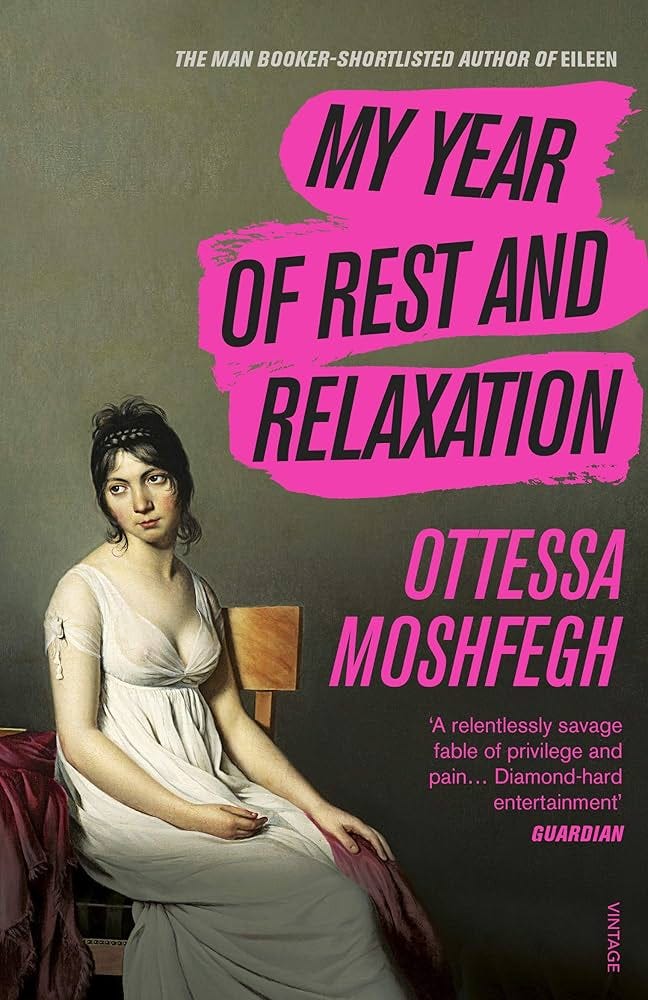
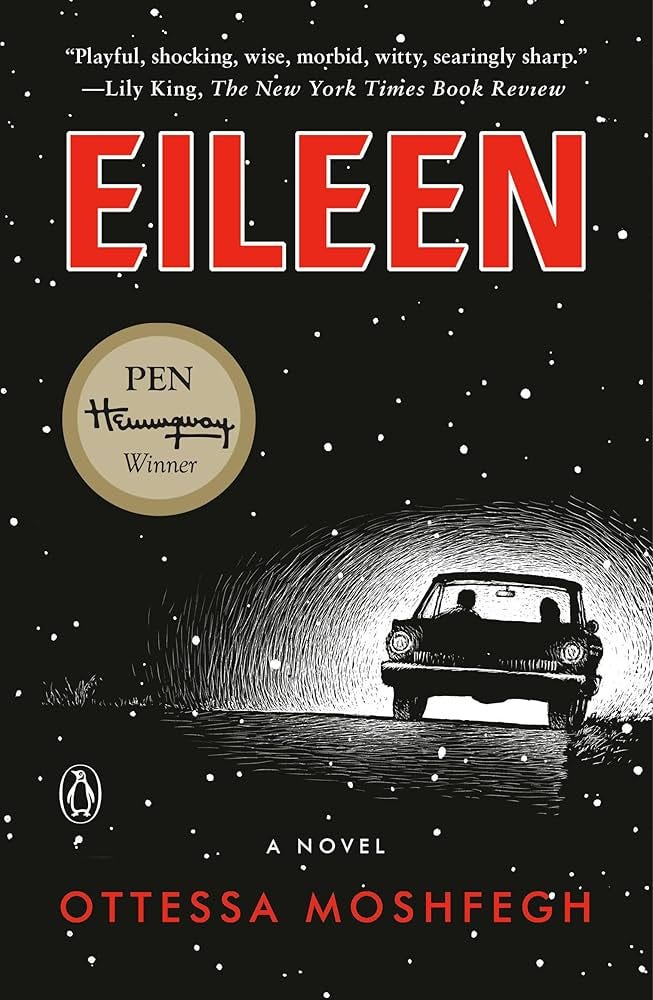
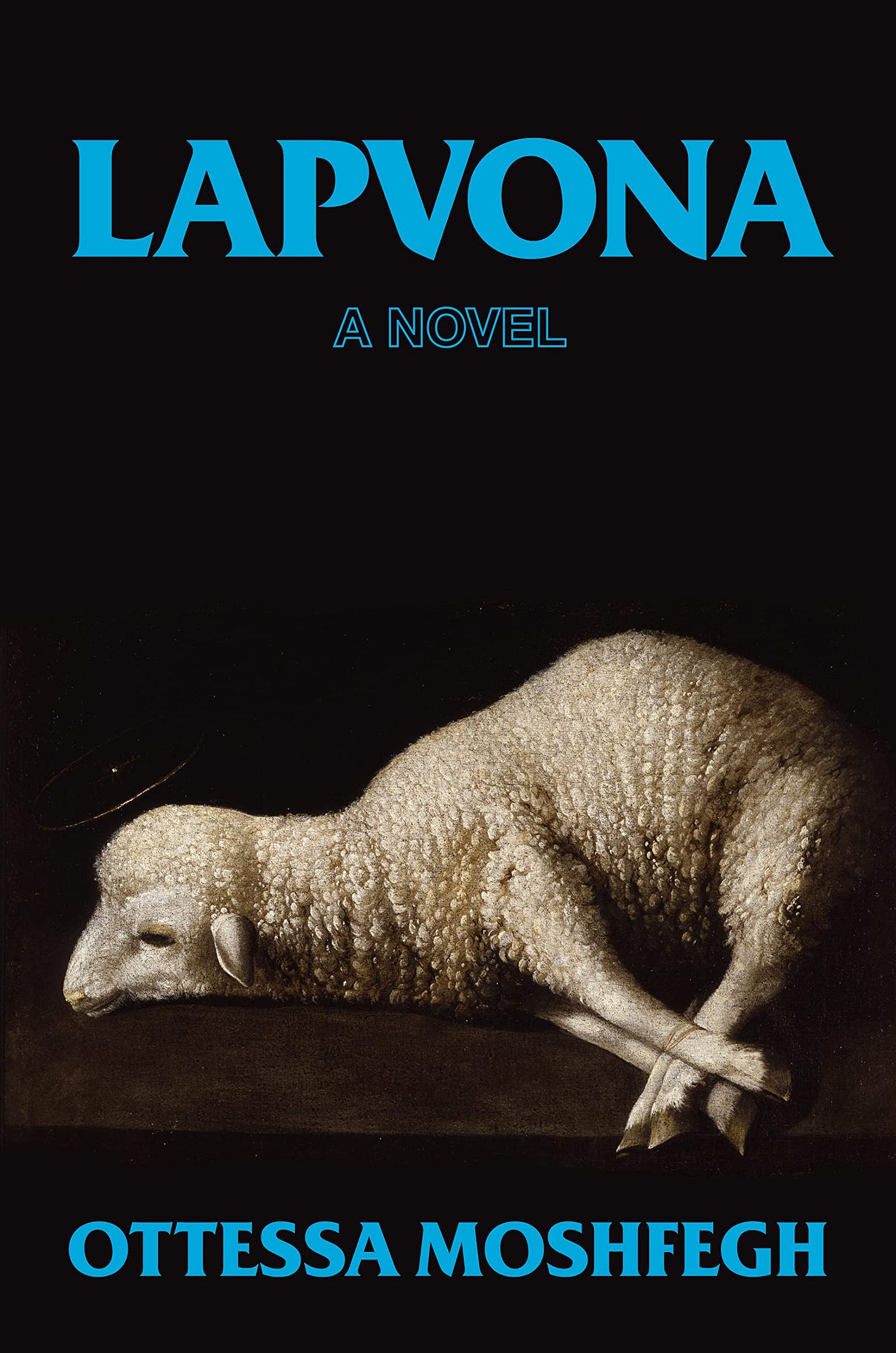

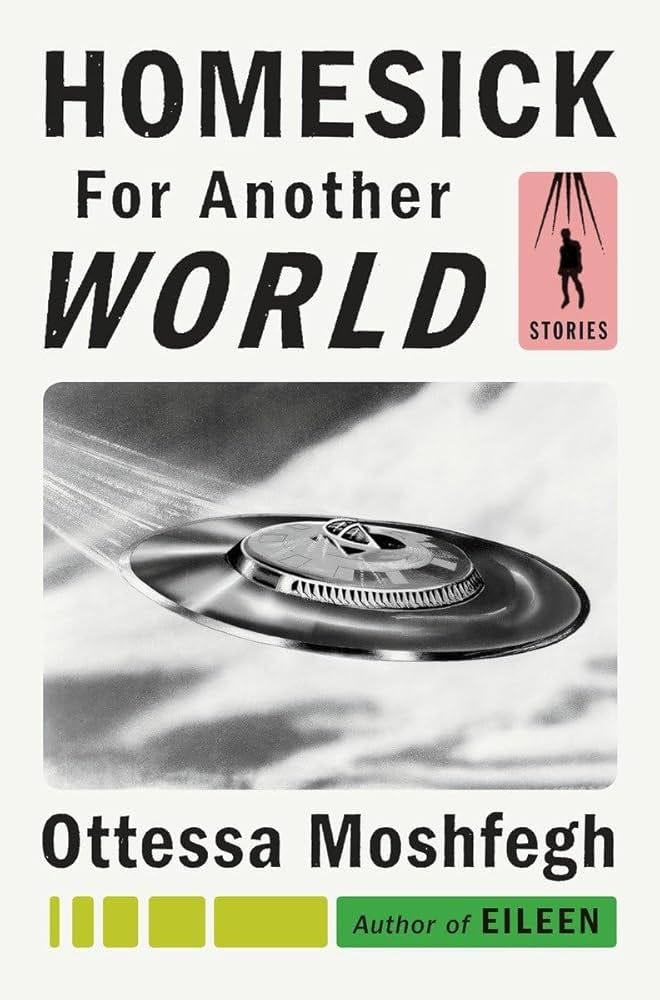
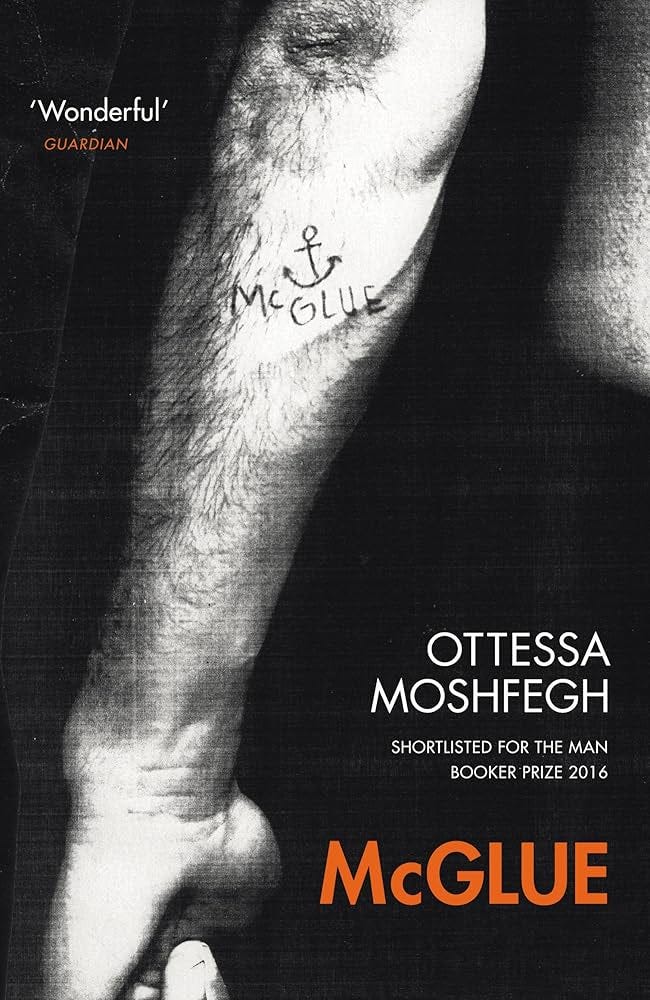
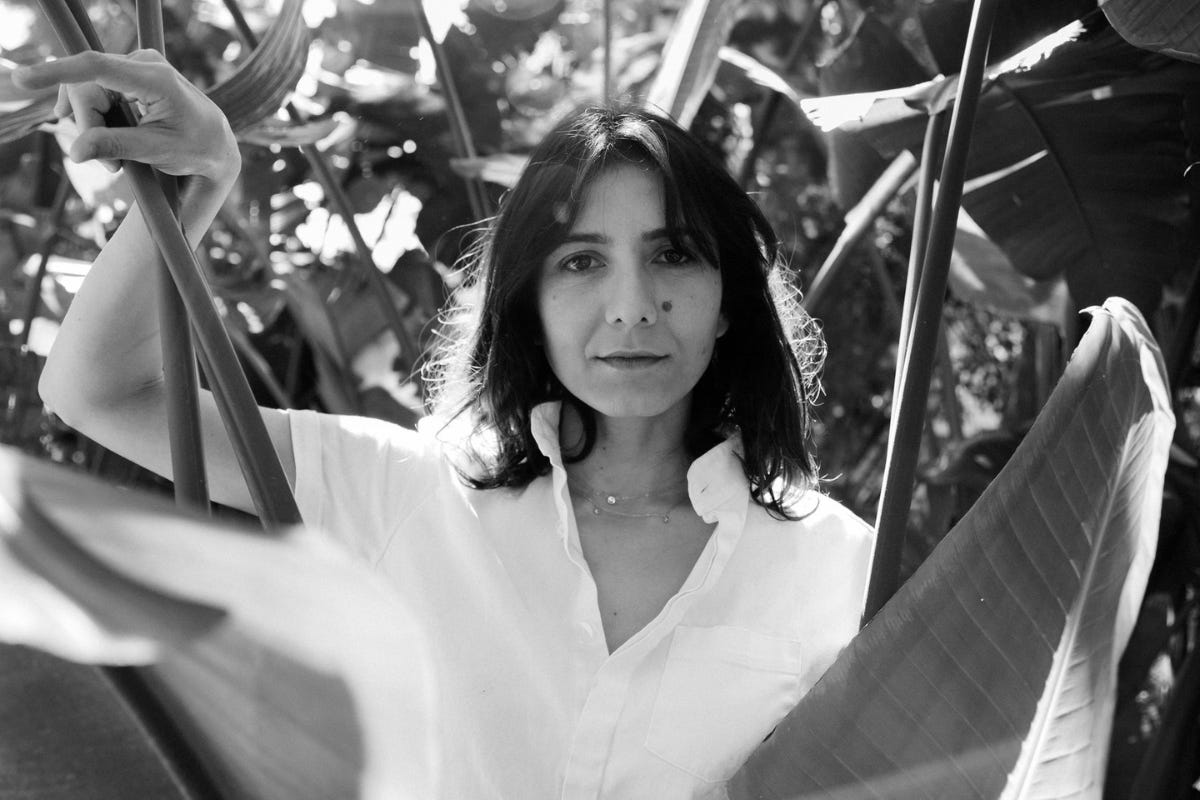
one of my top fav writers xxx thanks for your outline of herbooks it spreads the word
I’ve wanted to start my ottessa moshregh journey for quite some time but I just didn’t know where to begin - thank you for this !